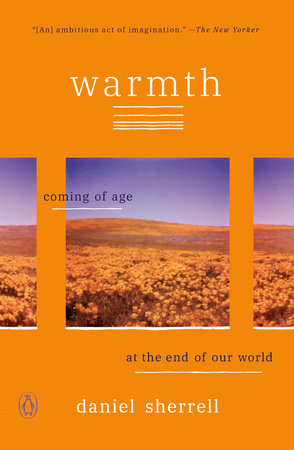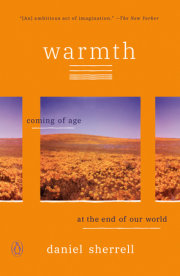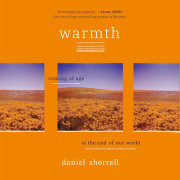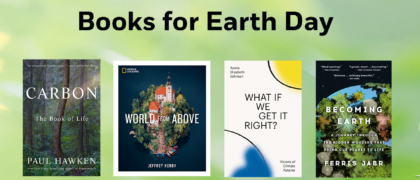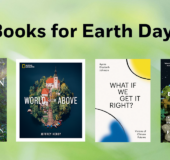Correspondence
On April 14, 2018, a civil rights lawyer named David Buckel burned himself alive in Prospect Park. He did it alone, just before sunrise, a brief illumination on a peripheral lawn. A cyclist found his body in a circle of char, though she had to pass by several times to be sure of what she'd seen. Later, she told reporters: it was hard to make myself believe it.
The suicide was well planned, even courteous. Buckel had cleared a ring of dirt around himself to keep the flames from spreading. "I apologize to you for the mess" read a note found by the police in a shopping cart next to the scene. A longer letter had already been emailed out to the press. This was an "early death by fossil fuel," it read. "It reflects what we are doing to ourselves."
I spent most of that day across town in Central Park. I remember it was gorgeous outside and the lakes were all crowded with rowboats, little schools of them flitting back and forth behind the curtain of the willows. I found a perch on top of a small hill and watched the loop road swell with people. Somewhere out of sight, a stoplight was releasing them in pulses: the tourists in their carriages, the cyclists, the loping Rollerbladers. They passed quickly and suddenly, then a beat of empty road, and then the unseen light changed once more, presumably, and the next wave came streaming past. The scene reminded me of a Bruegel painting IÕd first come across in a history textbook: a landscape of a village in winter, painted from atop a nearby hill. In it, you can see hunters and woodcutters going about their business, ice-skaters crisscrossing a pond, chimneys smoking in snow. According to the textbook, this painting was meant somehow to delineate the beginning of the Renaissance. As if all it took was a small vantage, the right flow of people, to funnel the whole historical watershed.
After a while, I fell asleep in the grass, and when I woke up the temperature had dropped and the picnics dissipated. The few people still out seemed in a hurry to get home. I walked back through the park toward the East Side, past the closing museums, past the expensive boutiques that mimicked the museums, single handbags underlit in glass display cases. Then down the stairs to the train, which I took back to the Bronx. It was only once I stepped into my darkened apartment that I saw the news from Prospect Park, glancing past it on my phone and then scrolling slowly back up, registering what I'd read.
What struck me even more than the tragedy-and it did strike me, a slow onset, so that I failed to make dinner that night, and eventually, at a loss for what to do once I finally tore myself from the screen, went to bed without ever having turned on the lights-was how quickly the event, this flicker of violence, was subsumed once more into the general mill of the park. Was forgotten, essentially. Beyond the cordon of police tape, the newspapers reported, the barbecues continued as normal, the corporate kickball games resumed. Participants in a charity walk strode industriously by in matching purple T-shirts, which predicted, in cursive quotes, that an end to pancreatic cancer was at hand. Wage Hope, the shirts read. The moment had rolled on, in other words. And I'm only being partially rhetorical when I ask you: What else could it have possibly done?
Afterward, I felt irrationally like I should have been able to detect some ripple when it happened, a subtle shock wave passing from his park to mine, like a bell tolled to part one hour from the next. Undoubtedly the news alerts had been piling up in my pocket, but I'd set my phone on silent and so hadn't felt even those regular vibrations I'd grown accustomed to associating with tragedy. While the man burned-the flames carbonizing his skin, then evaporating his blood-I hadn't felt a thing. It had been a beautiful day, and as I said, I'd spent much of it asleep.
Several days after the immolation, I took an afternoon walk with my mother. We were strolling in circles around a smaller park near my apartment, a third park, St. Mary's, this one less manicured than the other two. The cracked paths bristled with weeds that had sprouted eagerly at that first whisper of spring and then died once again in the ensuing cold snap. They looked brittle now, almost burnt. Apropos of very little, I had told her about the suicide and how sad I was about it. Which was not, in that moment, entirely true. In fact, I was often pathologically adaptive to news about the Problem, and that morning had woken up feeling completely fine, no longer able to access the pain I'd felt just days ago, like I'd stepped out of a room and had it lock behind me. My hope was that invoking the word "sadness" would somehow resurrect the emotion for us both. That I could cast the word like a spell and have it conjure between us an instant commiseration, obviating language altogether, which often struck me as plainly inadequate to any real consideration of the Problem. Though when this didnÕt work-and it never did-IÕd fall back on the usual bromides, letting them drop lamely into conversation. "I feel overwhelmed" is what I said on this particular occasion. "It's such a tragedy, and everyone's already forgotten." It was true, the news cycle had moved inexorably onward, though I still had a few emails at the bottom of my inbox with subject lines like "Rest in Peace," or, in some cases, "Fwd: Re: Rest in Peace."
My mother buried her chin into her scarf, listening. "He must have been kind of crazy," she said, sounding apprehensive, like she wanted to hear me agree. We walked in silence for a moment, past an empty playground, a row of old oaks. In the distance some men were playing soccer, and we watched the ball arc high above their heads.
I didn't think he was crazy, I told her finally, looking down at my feet. From what I knew his life had been normal, even honorable. He'd spent decades winning legal battles for LGBTQ rights before retiring and turning his attention to the Problem. In his last years he'd founded a large-scale composting program, sequestering more and more carbon even as he watched global emissions tick upward. Reading about his death, a part of me had understood exactly where he was coming from. I'd often thought about it myself, I admitted-staging the perfect self-sacrifice, something to drive a lightning rod through the public discourse, a suicide that would finally make the Problem personal. Of course it sounded embarrassing when I said it, messianic and delusional. And I chose not to even mention the specific and melodramatic scenarios that I had at one point or another entertained in the back of my head. Climbing to the top of a smokestack and plunging in, for instance. Or monitoring the weather for the next freak hurricane and then waiting on the beach as the rain picked up and the last bungalow renters pulled out of their driveways until finally the flood would come and wash me far inland and then back out to sea. I'd even run through some of the logistics, like how I'd need to bring bolt cutters in case the smokestack had some sort of grate on top. Or how it would help to rig a GoPro setup before the storm hit, in case the TV cameras weren't there to capture the moment I went under.
"I can't believe you're telling me this," my mother said, lifting her head from her scarf so that we both had to stand there and look at each other. The sun was beginning to set, and we could hear shouts from the field behind us. Someone had scored a goal.
"I'm not depressed," I told her, which was true. For a twenty-something who spent an above-average portion of his time thinking or trying not to think about the end of the world, I was, to my surprise and almost frustration, basically happy. "It's just occurred to me as a strategy," I added, as if this clarification might offer some comfort.
"Don't you ever, ever do anything like that," she said. "It wouldn't do a thing except destroy the people you love."
In the unseasonable cold, burrowed down into her coat, she looked genuinely worried, and I suddenly regretted saying anything. Because of course I knew I agreed with her. It wouldn't do a thing; it was bad strategy. The fire in the park had proven exactly this point: even if you bowed definitively and dramatically out, the Problem would simply go on without you. I promised her I wouldn't, and it was an easy promise, but afterward I felt a new and this time unprompted sadness. Without the possibility of appeal to that ultimate recourse, there was little left to buffer this feeling that I'd been trying to outpace for months: that maybe it didn't matter what you did, maybe there were just no strategies left to us at all.
It was around this time that I began writing to you about the Problem. At first it was only semiconscious, a straw I would grasp at to fend off hopelessness. IÕd tap my anxieties into a note in my phone, then click it shut once the thought had petered out. It always felt absurd, trying to confide in you, something I wouldÕve been embarrassed to admit to anyone. But it also brought a strange kind of solace: As if I were fortifying the possibility that you might one day exist. As if, in addressing you, I could make you more and more real.
This was after college, in the years I first lived in New York. During that period, I would sometimes accompany my grandmother to her synagogue in Far Rockaway. It was an Orthodox shul, though members referred to it simply as "black-hat," a term I preferred for its note of witchy intrigue.
We would sit apart from each other, my grandmother in the women's section, which was separated from the men's by a one-way screened partition. Through it she could watch me pretend to pray, flipping through the pages in my siddur, my train of thought curling into a little ouroboros of distraction. Around me the other men wore dark suits and tzitzis, occasionally a streimel lined with fur. They prayed in silence, shuckling and mouthing the words until the cantor broke abruptly into song. The singing was always disorganized, entirely absent the harmony of a choir, and those men who finished first would meander through the pews, pulling each other aside for hushed and familiar conversations.
I knew that-invisible behind the screen-my grandmother was praying for you, praying that I'd get married and bring you into the world, and that after services let out she would take me by the arm and point out any number of devout and eligible young women with whom this goal might be accomplished. So I paid particular attention to the rabbi's sermons, hoping to arm myself with another topic of conversation that might steer us away from you, from all the uncomfortable questions you raised.
The rabbi's sermons often concerned the mashiach-when he would come and what we could do to hasten his arrival. The mashiach was meant to usher in olam ha-ba, the coming world, though there was much debate about what this world would consist of. "There is there neither eating, nor drinking, nor any begetting of children, no bargaining or jealousy or hatred or strife," said the Babylonian Talmudist Abba Arika. "All that the righteous do is to sit with their crowns on their heads and enjoy the effulgence of the Divine Presence." The second-century sage Rabbi Yose HaGelili pictured something darker and stranger. "The souls of the wicked," he said, "will be slung away in the hollow of the sling." The Sanhedrin claimed simply that all those who have died will be resurrected. And the book of Isaiah skirted the question entirely. As for the world to come, so it is written, "eye hath not seen."
I agree there may be no use here in my speculating on the nature of the world to come. I mention all of this just to say that on some level I was already familiar with the eschatology of the Problem. I knew what it meant for fate to be dangled just beyond reach, like a carrot on a string. How it might feel to wait a lifetime for something immense and uncertain to finally run its course.
To get to my grandmother's I took the subway out to the end of the line, where the tracks run parallel with the ocean. The trains clattered past the beachfront apartment blocks, but inside the passengers observed a strict and definitionally unspoken pact of silence. Almost no one talked, and few people made eye contact. They looked down at their phones or out at the water. Sometimes panhandlers and proselytizers broke the pact, but even during rush hour it was like they were speaking to an empty car.
By the time I moved to New York, it had already become clear that the subway system was falling apart. Components were coming loose and connections weren't being made. Old engineers and signalmen were being brought out of retirement, tapped for their arcane knowledge of a certain rusted switchboard at a major junction in Queens. The governor wasn't investing the money needed for an overhaul and spent much of his time trying to blame the mayor, who had no jurisdiction over the matter. But though the infrastructure was outdated and the politics dysfunctional, it was a storm that had really pushed things over the edge. Incongruously, the storm was named Sandy. Some official body would give a name to each successive storm in alphabetical order, restarting each year at the letter A. Whoever it was tended to choose sunny names from the Greatest Generation: Sandy, Harvey, Irma-names you might expect to find in a South Florida retirement community, the sort of community that, ironically, was also highly at risk from the uptick in storm severity precipitated by the Problem.
Sandy had struck Far Rockaway in late 2012, once most of the alphabet had already been taken. At the time, I was in my final year of college, hours away from New York. I spent the night texting family members and frantically refreshing my browser, trying to construct from out of the random scraps of news some semblance of the actual scene. How the wind sped up and the trees bent double. How the awnings on my grandmother's apartment building snapped against their tethers. And how everyone inside watched the storm approach on TV, its vortex rendered in vivid green, a juggernaut lumbering toward the coast. They watched until the sky was dark and the rain sounded urgent against the windows, like it was knocking to be let in. They watched until the wind cut the power and extinguished the TVs and they could no longer track where the storm was or what it was doing. Only then, in the blackout of its own making, did the storm make landfall.
Copyright © 2021 by Daniel Sherrell. All rights reserved. No part of this excerpt may be reproduced or reprinted without permission in writing from the publisher.

